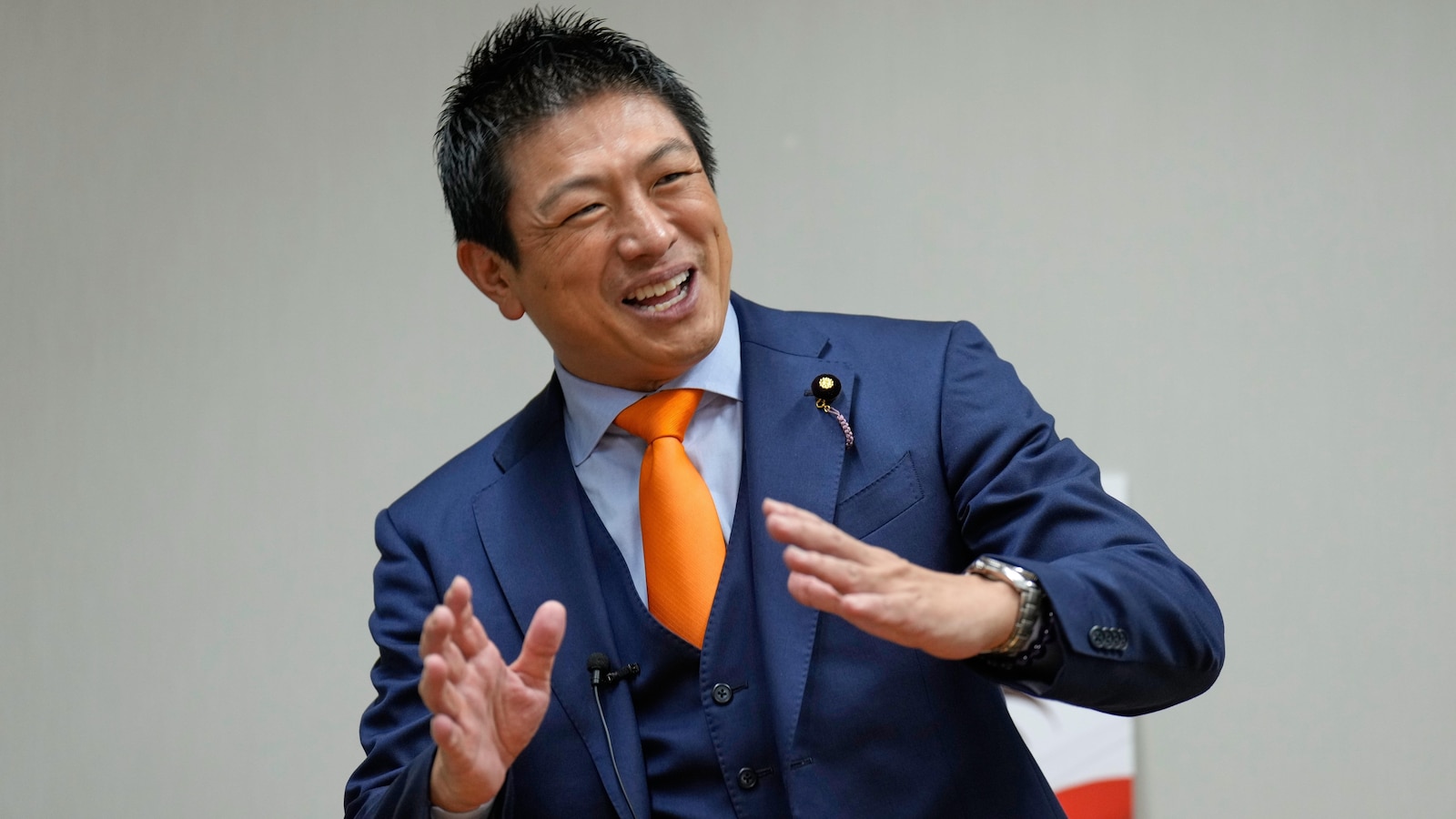Outside a train station near Tokyo, hundreds of people cheer as Sohei Kamiya, head of the surging nationalist party Sanseito, criticizes Japan’s rapidly growing foreign population.
As opponents, separated by uniformed police and bodyguards, accuse him of racism, Kamiya shouts back, saying he is only talking common sense.
Sanseito, while still a minor party, made big gains in July’s parliamentary election, and Kamiya’s “Japanese First” platform of anti-globalism, anti-immigration and anti-liberalism is gaining broader traction ahead of a ruling party vote Saturday that will choose the likely next prime minister.



A UBI is a necessity for societies going forward.
Basically, wealth inequality is so bad now that our economies and societies no longer serve the majority of people’s needs.
So wealth redistribution is required to fix the problem, the question after realizing that is how to go about it.
We can do a one time redistribution of wealth, but without fundamentally changing the system with regulations, incomes will inevitably become imbalanced again. This is what we did after the Great Depression with the jobs program that was the national parks and highway/railroad projects.
IMO it’s better to just stop treating money like it’s harmless to allow excess accumulation. It would be better if all wealth were perpetually redistribed via a UBI, this would permanently maintain wealth equality. This is similar to what we did after the Great Depression in regards to corporate tax rates and setting a maximum profit.
UBI is the new hotness in terms of popular modern means talked about to undo the ever-growing wealth gap, but it is completely untested in the real world. It has challenges even on paper, including the ones I alluded to above involving being exceptionally susceptible income uncertainty and government corruption.
And you are right to point out that anything we do now to correct the wealth disparity problem is wasted if we don’t do enough to prevent another regression back to this same state again. I’m sure UBI could work under the right conditions, as well as many other solutions, but the real success or failure of the program will be measured based on how well and for how long it can resist attempts to dismantle it by bad-faith actors.
I am pretty sure there’s a lot of agreement here on the core of the issue, I just have doubts about UBI because it puts the fate of the most vulnerable citizens with the most easily-ignored political voice even more into the hands of their government, who often do them dirty.
It’s been tested dozens of times, and every time it is tested, it shows people are happier and healthier, and so is their community.
So it does work and is possible, and it would fix a ton of problems.
I mean at the scale at which it would be used. A small pilot program that has millions of eyes on it is not going to get undermined by bad actors because everyone is watching. It is good to create tests and pilot programs to try new economic and governance systems, but it is also important to remember that those are idealized lab conditions.
Also, consider the context of the discussion. Literally any system where money is put in the hands of those in poverty is going to immediately result in improved conditions for those people and increased local taxable economic activity. I could give them a UBI stipend, big tax rebates, increased wages, or even drop cash from planes. The point is that it is not necessarily the method that made the difference but the result. In this case the result is “get buying power to poor people”, and any system that achieves that is going to be an economic and social good.
I’m just not convinced UBI is the safe way to do that. Its an inescapable fact that any government is going to have internal forces trying to undermine its protections to enrich themselves, so it is wise to remember that any government systems we come up with that are not made highly resistant to capture are only going to serve their intended purpose temporarily.
In every study they also witness no significant drop in labor participation, and it always enriches the local community. People become more altruistic, less stressed and agitated, family relationships improve. It’s good in pretty much every single way with no discernible downsides. Please look into more studies.
There isn’t going to ever be a study that is universal until we implement it universally, so there’s literally no way to test it in the way critics want, this argument is just baseless propaganda.